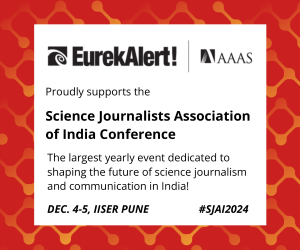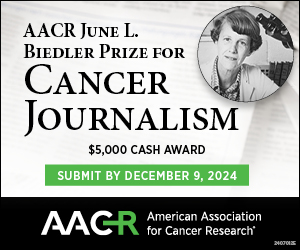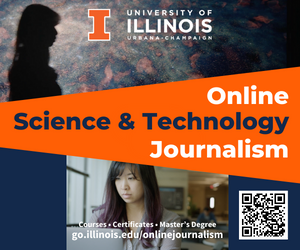2008 Science in Society Journalism Award winners
The winners of the 2008 Science in Society Journalism Awards, sponsored by the National Association of Science Writers are: Liza Mundy for her book "Everything Conceivable: How Assisted Reproduction Is Changing Men and Women and the World" (Knopf), Beth Whitehouse for her Newsday series "The Match," and Stephen Lyons and Llewellyn M. Smith for their docudrama "Forgotten Genius," which appeared on PBS's NOVA television series.
In addition, the judges awarded an honorable mention to Alison Richard and David Malakoff for their year-long radio series "Climate Connections: How People Change Climate, How Climate Changes People," which appeared on National Public Radio.
The three winners each will receive a cash prize of $2,500 at a reception on October 26, 2008 during NASW's annual meeting, which this year is in Palo Alto, California.
NASW established the Science in Society awards to provide recognition — without subsidy from any professional or commercial interest — for investigative or interpretive reporting about the sciences and their impact for good and bad. The awards are intended to encourage critical, probing work that would not receive an award from an interest group. Beginning with the first award in 1972, NASW has highlighted innovative reporting that goes well beyond the research findings and considers the associated ethical problems and social effects. The awards are especially prestigious because they are judged by accomplished peers. NASW currently awards prizes in three categories: books, periodicals (magazines and newspapers), and electronic media (including radio, television, and the Internet).
- In "Everything Conceivable," Liza Mundy, a feature writer at the _Washington Post Magazine_, examined assisted reproductive technologies their often unexpected ramifications. "Even people who think they are really up to date on these issues are going to be very surprised," one of the judges said. "The book documented trends that are as baffling as they are unknown," said another.
- Published September 30 to October 4, 2007, the five-part series "The Match" by _Newsday_ reporter Beth Whitehouse, focuses on a single family to illuminate the medical, personal, and ethical dilemmas surrounding prenatal genetic testing and human reproduction. Ms. Whitehouse spent 3 years with the Trebing family on Long Island, New York. After their daughter was diagnosed with a rare and deadly disease, they sought to conceive another child whose bone marrow could cure his sister. "This is such a wonderful example of what a newspaper can do in a very personal way," one of the judges said. "To take a single story, a single-family, and turn it into a symbol of this entire debate over prenatal genetic screening." Another judge described the series as "riveting" and "emotional."
- Originally aired on PBS on February 6, 2007, "Forgotten Genius" chronicles the life of Percy Julian, a groundbreaking African-American chemist. The grandson of Alabama slaves, Dr. Julian rose to the highest levels of scientific achievement, overcoming countless obstacles to become a world-class scientist, a self-made millionaire, and a civil-rights pioneer. One of the judges described "Forgotten Genius" as, "An extremely moving emotionally charged personal story matched with good explanatory science reporting. This is one of the few docudramas that actually blends documentary with the drama and really grips the viewer."
- The judges also praised NPR's "Climate Connections," a series of 170 stories that document how humans around the world are — and are not — responding to the challenge of global warming. The judges were especially impressed by NPR's "incredible commitment of resources."
The judges agreed that many of the 155 entries this year were especially outstanding. Madeleine Jacobs commented, "I think the quality of all the entries showed that science journalism is alive and well, but we should not take that for granted. In this era of very short attention spans and dwindling resources for journalism we are blessed that we still have publishers that are willing to commit the resources to ensure that the public learns about these extremely important issues."
Entries for next year's competition, for material published or broadcast in 2008, are due February 1, 2009. Entry forms will be available at www.nasw.org by January 2009.
The largest organization devoted to the professional interests of science writers, the National Association of Science Writers fosters the dissemination of accurate information regarding science through all media normally devoted to informing the public. Its 2,500 members include science writers and editors and science-writing educators and students.



